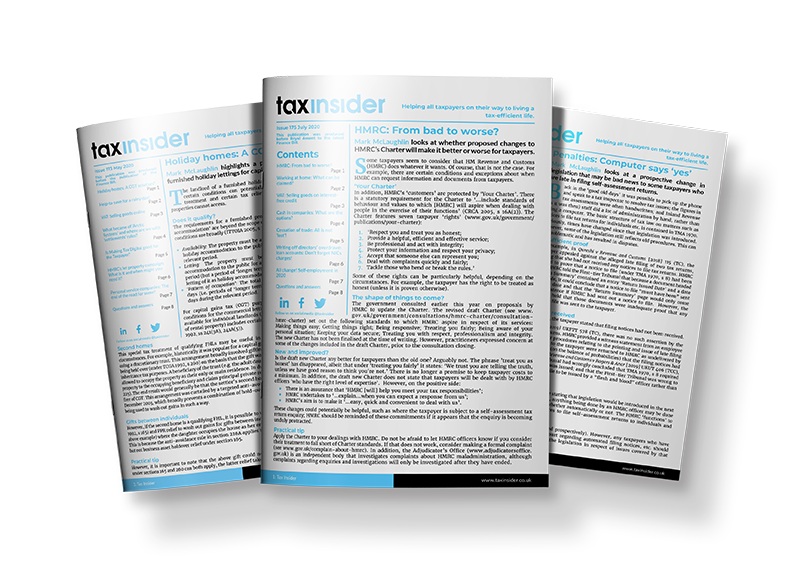Kevin Read explains why some trading businesses face a big decision. 
----------------------
This is a sample article from our tax saving newsletter - Try Tax Insider today.
---------------------
Unincorporated trading businesses are going through their biggest tax change for a generation, with the switch to a tax year basis of assessment replacing the ‘basis period’ system for 2024/25. The tax year 2023/24 was a transition year with special rules. Further changes are now on the way.
‘Cash basis’ to become the norm
Since 2013/14, smaller unincorporated trading businesses have had the option of preparing their tax computations on a cash basis (i.e., looking at when money is received or paid) rather than the normal accruals basis of accounting.
The cash basis has been expanded for such taxpayers (by FA 2024, Sch 10), including those in partnerships, from the tax year 2024/25. The changes will not apply to property businesses or those entities already excluded from the current cash basis regime (such as farmers and creative artists making a profits averaging election).
The cash basis will become the default method of calculating profits, with businesses able to opt to use the accruals basis instead if they wish. This reverses the current position for those eligible to use the cash basis. The accruals basis election (under new ITTOIA 2005, s 25C) has effect for the tax year for which it is made and every subsequent tax year until an election is made to move back into the cash basis.
Trading businesses can currently elect to use the cash basis if their turnover is below £150,000 p.a. and must leave the cash basis when their turnover exceeds £300,000. These restrictions are being removed completely.
Deductions for interest
Where the cash basis is used, there is currently a limit of £500 on the amount of interest that the business can deduct against the profits for the year.
This limit is being abolished, allowing tax relief for full interest costs if they are ‘wholly and exclusively’ for the purposes of the trade.
Trading losses
The current restrictions on the utilisation of losses under the cash basis, which only allow for the carry forward of losses against the first available profits of the same trade, will be removed. As under the accruals basis, losses will be available to be:
-
set against total income or gains of the same or previous year (ITA 2007, s 64); or
-
(for losses arising in the first four tax years of trade) carried back three years against total income (ITA 2007, s 72).
Capital allowances
Under the cash basis, most capital expenditure on plant and machinery is treated as an allowable expense. On transition to the cash basis, any pool that contains only items of capital that can be deducted in full in the year of expenditure under the cash basis will come to an end; a full deduction for the remaining pool balance is taken in the year of transition. Note that, due to the availability of the annual investment allowance, many businesses will not have such a balance on their pools.
However, if there are also items that had been purchased that are not cash-deductible (e.g., cars), they must remain in the pool on a just and reasonable basis.
Private use adjustments
The cash basis requires complex adjustments for capital assets used for both business and private purposes.
For example, a reduction in business use is treated as the sale of part of the asset at market value. Accounting for private use of capital assets is therefore more straightforward under the accruals basis.
Practical tip
This change will be significant for all unincorporated trading businesses, particularly as regards whether to elect to stay with accruals accounting in 2024/25. The transition between accruals and cash accounting avoids double counting (and omission) of income and expenses, so be careful when analysing the profits you want to be taxed on in 2024/25.



